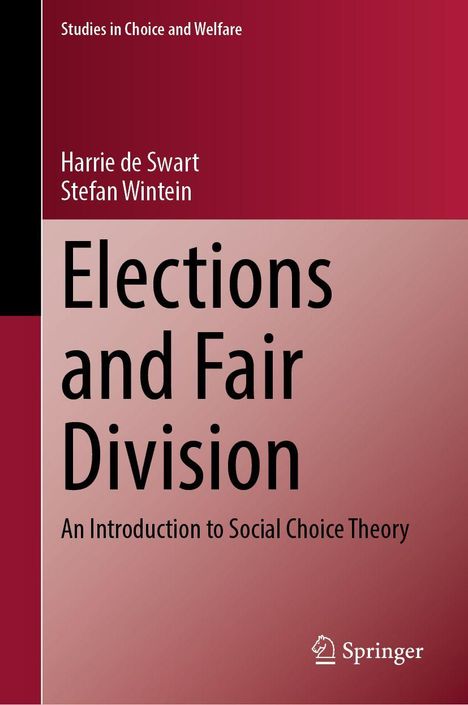Harrie De Swart: Elections and Fair Division, Gebunden
Elections and Fair Division
- An Introduction to Social Choice Theory
(soweit verfügbar beim Lieferanten)
- Verlag:
- Springer, 11/2025
- Einband:
- Gebunden
- Sprache:
- Englisch
- ISBN-13:
- 9783032060099
- Artikelnummer:
- 12404915
- Umfang:
- 324 Seiten
- Gewicht:
- 651 g
- Maße:
- 241 x 160 mm
- Stärke:
- 24 mm
- Erscheinungstermin:
- 12.11.2025
- Hinweis
-
Achtung: Artikel ist nicht in deutscher Sprache!
Klappentext
This graduate textbook introduces to social choice theory, with a specific focus on elections and fair division, supported by mathematical theories and practical implications.
Part I sheds light on the complexity of fair elections, and presents classical results from social choice theory, including May's, Arrow's, and Gibbard-Satterthwaite's theorems, and how they impact the organization of fair elections. They also discuss the measurement of voting power in such elections via the Penrose-Banzhaf index and the Shapley-Shubik index. Besides these more or less classical topics, the authors introduce Balinski and Laraki's transformative Majority Judgment framework. Moreover, Part I concludes by critically addressing flaws in contemporary Western democracies and proposing an alternative political system.
In Part II, the book dissects claims-based and preference-based fair division, explaining that the focus will be on the former. In particular, the focus will be on models that can elaborate on and make precise the thought that `fairness requires that claims are satisfied in proportion to their strength', as advocated for in the philosophical literature. The authors scrutinize various formal models, ranging from (weighted) bankruptcy problems to cooperative games, assessing their alignment with this claims-based conception of fairness. Part II concludes with a brief overview of preference-based fair division.
This textbook is a crucial resource for graduate and advanced undergraduate students and scholars, bridging the worlds of mathematics, philosophy, political theory, and social justice.


